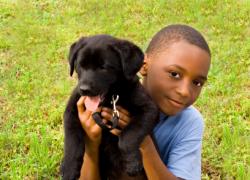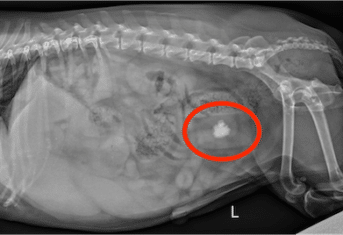Your Child and Animals: Advice to Parents

Your Child and Animals: Advice to Parents
As parents, we want to raise children who have a reverence for all living things, and what better way to educate them about animals than to spend a day at a petting zoo, a country fair, or a natural science museum featuring live animal displays? Animal events are fun and educational for the entire family, but before you attend an animal event, your children need a bit of advance preparation to protect themselves. Animals in public setting have been associated with some preventable health issues such as infection, injury, and allergic reactions.
Infection connection
Rodents, reptiles, livestock, pocket pets, and even wild mammals visit schools and are displayed at county fairs and science museums. The potential dangers vary from animal to animal. Livestock can carry the bacteria E. coli, which causes gastrointestinal upset in humans. Just last week I read a report of an E. coli outbreak linked to a fair in North Carolina.
Reptiles commonly shed another bacterium causing gastrointestinal upset: Salmonella. This organism is the reason turtles less than 4 inches in size have been banned from sale. Most experts consider turtles appropriate pets for children over five years of age.
Approach animals cautiously
Parents take their children to visit animal displays because they want their children to be comfortable around animals and to appreciate the natural world. Before you go, make sure your child understands if the animals can be touched and, if so, how to approach one safely. If your child is bitten during one of these events, you risk dampening your child’s enthusiasm for animals and simultaneously exposing him to a serious injury or infection.
Even iguanas can cause allergies
If you have a child with animal allergies, check with her allergist about how best to handle an animal visitation. Most children allergic to dogs and cats are likely to be allergic to other furry critters such as guinea pigs, chinchillas, and rodents. Some people even have allergies to iguana scales.
Take home messages
- Teach children how to safely interact with an animal before visiting a petting zoo, county fair, or school event featuring animals.
- Wash hands after every animal interaction or use hand sanitizer.
- Children should not kiss animals or put their hands in their mouth after handling an animal.
- Children too young to follow directions about hand washing and keeping their hands out of their mouths should not handle animals in public displays.
- Because of the risk of transmitting an infection, hands should be washed after petting animals and before snack time.
- Wild animals do not make good pets.
If you are an early childhood educator, guidelines for animals in schools have been developed by the Centers for Disease Control.


































